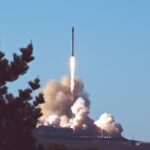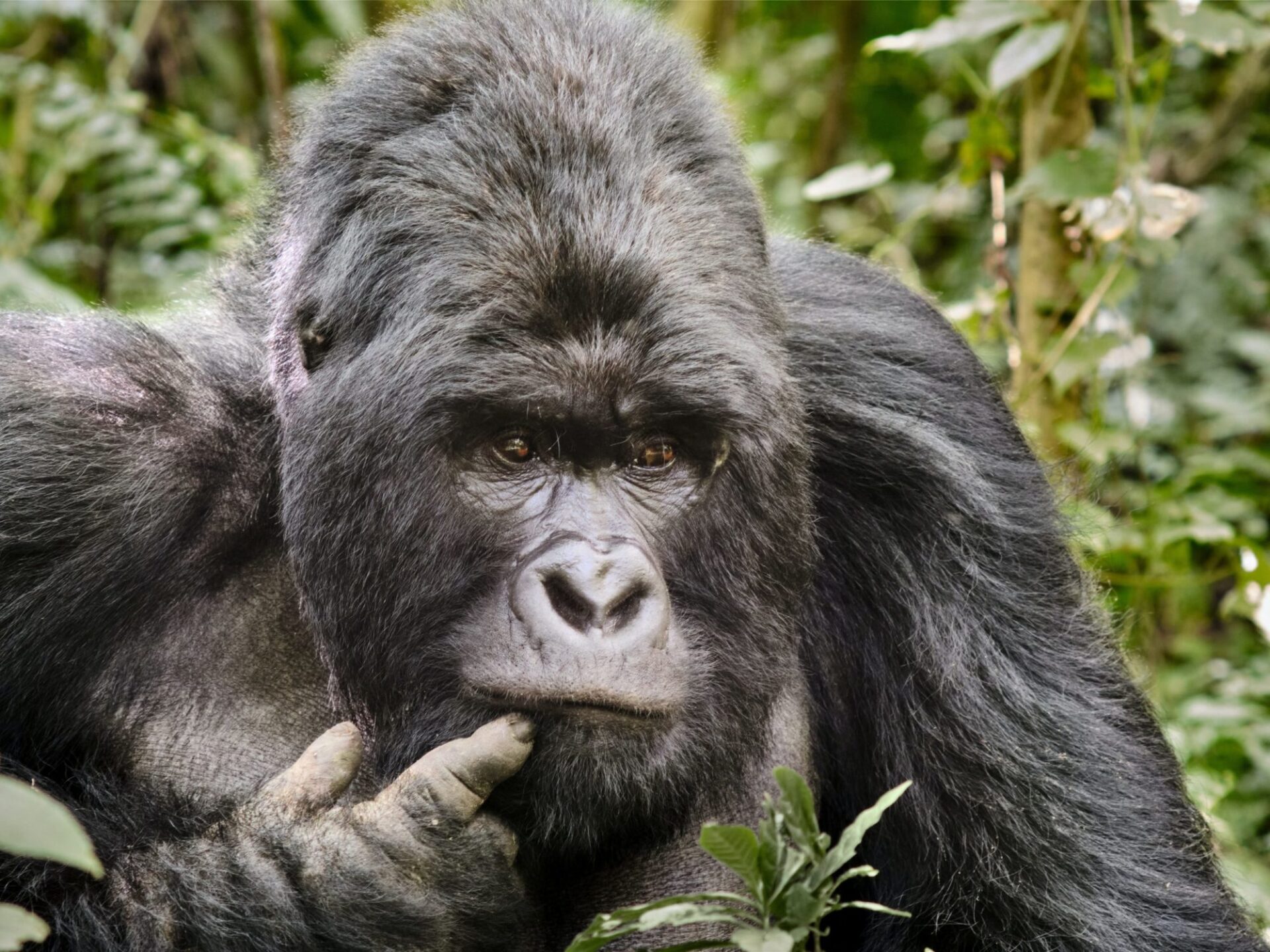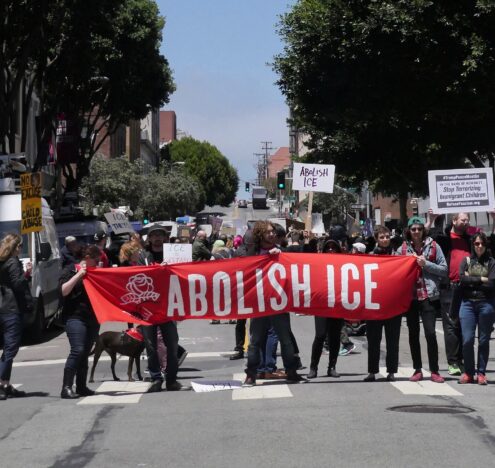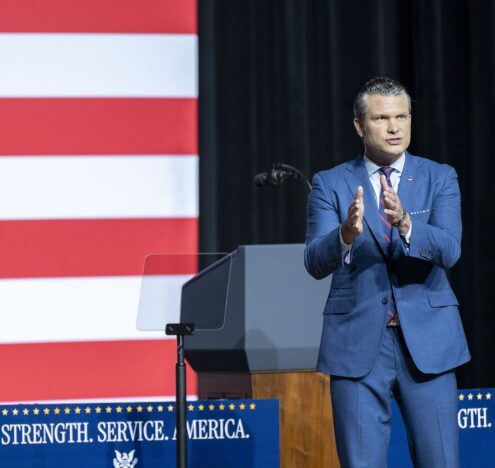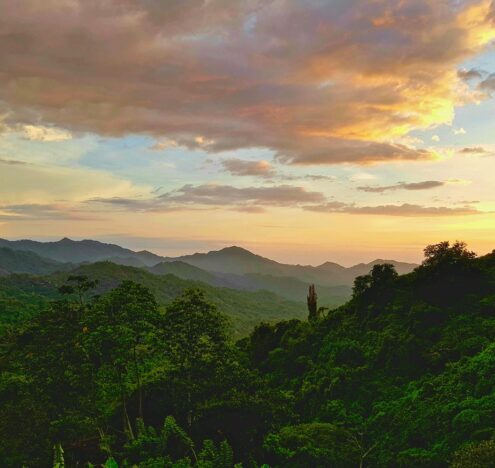The Democratic Republic of Congo is accepting bids for leases to 30 blocks of some of the world’s most valuable land until February 2023 to open it up for oil and gas exploration. The land is a mix of lush green rainforest, peatlands, and mountains, and it’s the best carbon sink in the world. These lands absorb more carbon dioxide than they produce. The peatlands are about the size of the United Kingdom and have trapped an estimated 30 billion metric tons of carbon, about as much as the entire world emits in three years. At least two of the blocks for lease touch on one of the world’s last mountain gorilla sanctuaries in the Virunga National Park. Perhaps more critical for Congo, these blocks of land contain an estimated $650 billion in oil and gas, which will help diversify the DRC’s economy, moving it from near complete reliance on mining.
Congo, one of the poorest countries, is witnessing how Russia’s invasion of Ukraine is driving oil prices to an all-time high while forcing Europe to consider rationing oil and gas. And it is unswayed by the contradictions in the Global North’s position on fossil fuel production. Norway, which advocates for protecting rainforests, is expanding its oil production and is planning new offshore oil drilling operations. The United States continues to call for decreasing global reliance on fossil fuels, but President Joe Biden visited Saudi Arabia to plead for increased oil production. In addition, Biden’s bipartisan infrastructure deal allows for the sale of an estimated $6 billion in US oil reserves and weakens environmental oversight of oil and gas pipelines on federal lands.
Two major European oil and gas companies, Italy’s Eni and France’s TotalEnergies, have chosen not to bid in the auction, potentially because of public criticism from celebrities and climate activists demonstrating the costs of oil and gas exploration in the DRCs peatlands and rainforests. Congo will also accept bids from cryptocurrency and carbon capture companies. The Biden administration must participate in this auction with venture capitalists, American climate change philanthropies, and carbon capture firms. And the best way to do so is by forming a new public-private partnership through the Prosper Africa interagency initiative and leasing as many land blocks as possible.
WHY LAND LEASES ARE IMPORTANT
The new National Security Strategy (NSS) emphasizes the urgent need to combat climate change and describes public-private partnerships as the most efficient way to do so. But public-private partnerships, like ones with carbon capture firms, require strategic public investment. This type of public-private partnership is important because the NSS embeds “climate change into the investment strategies of our development finance institutions.” It is also a credible commitment to climate security supporting US rhetoric about limiting African fossil fuel investment. As for competing with China, this approach helps close the gap in carbon capture technology investment between the United States and China. And it renews US influence in Congo while offsetting tumultuous Chinese influence.
Investing in not-yet profitable carbon capture technology is a risk. But acting on climate change in Congo is the quintessence of leadership.
Early in the Cold War, Congo’s uranium deposits drew it into the US orbit. Today, in addition to coltan and diamonds, about 75% of global cobalt, primarily used in electric vehicle batteries, is sourced in the DRC. Neither colton nor diamonds are used for green energy. In fact, their mining is harmful to the environment. Furthermore, China is the largest investor in the Congolese extractive sector. Investing over $6 billion in Congolese mining in 2021 alone, China provided an estimated $2.4 billion in loans for the development of transport, mining, and power since 2000. And nearly half of all Congolese exports are destined for China. In the week preceding the announcement of the auction, Congolese Prime Minister Sama Lukonde Kyenge met with China’s Special Representative on African Affairs Xu Jinghu in Kinshasa. Chinese companies, many of whom work hand-in-hand with the Chinese state, are well-positioned to win the most lucrative land leases in the auction should they bid.
Prosper Africa is the best immediate alternative to more Chinese investment in Congo and oil and gas companies bidding on the land. Prosper Africa harmonizes investments in Africa between the private sector and 17 US government agencies. This interagency initiative is designed to align US geopolitical objectives, American and Congolese climate change objectives, and private sector goals. China has gained a significant share of the Congolese natural resource market through a similar continent-wide public-private partnership approach to international investment.
A Congolese court removed the Chinese owner of a cobalt and copper mine (China Molybdenum) because it owes the Congolese government billions of dollars in royalty payments. Between 2020 and 2022, seven other Chinese mining companies were suspended for polluting local soil and tributaries of the Congo River. US green energy companies that invest in Congo with the explicit goal of limiting pollution through the testing and use of carbon capture technologies may have a competitive advantage over similar Chinese-backed firms, given the conflictual relationship that Chinese firms have with the Congolese state. Green energy investments afford Congo the revenues it needs and helps it avoid the international opprobrium associated with oil and gas exploration in sensitive lands.
The US embassy in Kinshasa maintains a Prosper Africa “deal team” that can connect US firms to investment opportunities in the DRC. This team should direct its attention to the DRC’s land auction to help win the leases. This is an ideal time to initiate new business partnerships with Congo to help it benefit from its natural wealth and protect the Congo Basin rainforests.
READY TO TAKE THE LEAD?
The United States investing in Congo is not a panacea. It is unlikely that US investors will win all 30 land leases, given the cost and need for liquid cash. Oil exploration is likely to occur because oil prices are hovering close to record highs, and the Organization of the Petroleum Exporting Countries has cut oil production.
Congo is one of the hardest places in the world to do business. And investing in not-yet profitable carbon capture technology is a risk. But acting on climate change in Congo is the quintessence of leadership. It means taking mindful risks to make others want to follow. Is the Biden administration really ready to take the lead?
Zuri Linetsky is a research fellow at The Eurasia Group Foundation. Prior to joining The Eurasia Group Foundation, he was a consultant and worked extensively in east and west Africa and the Sahel.








